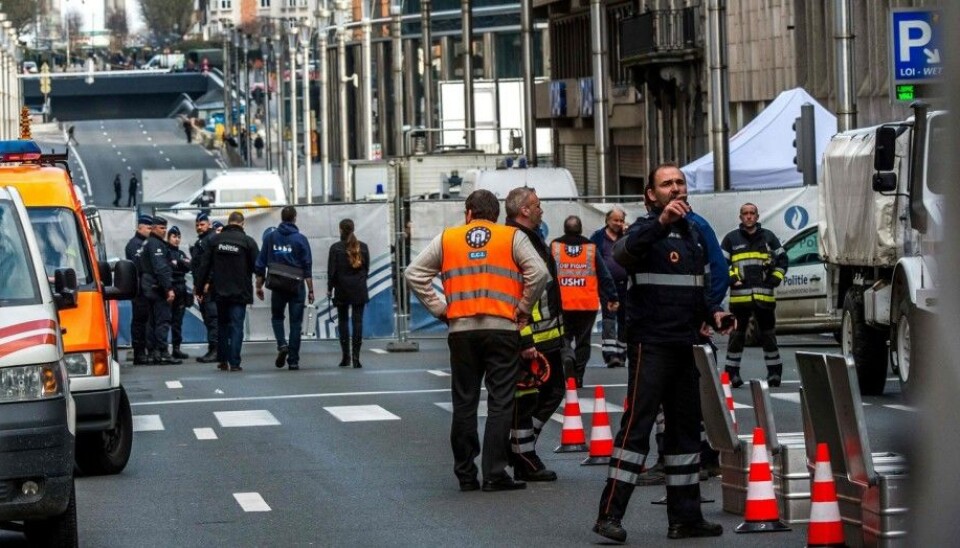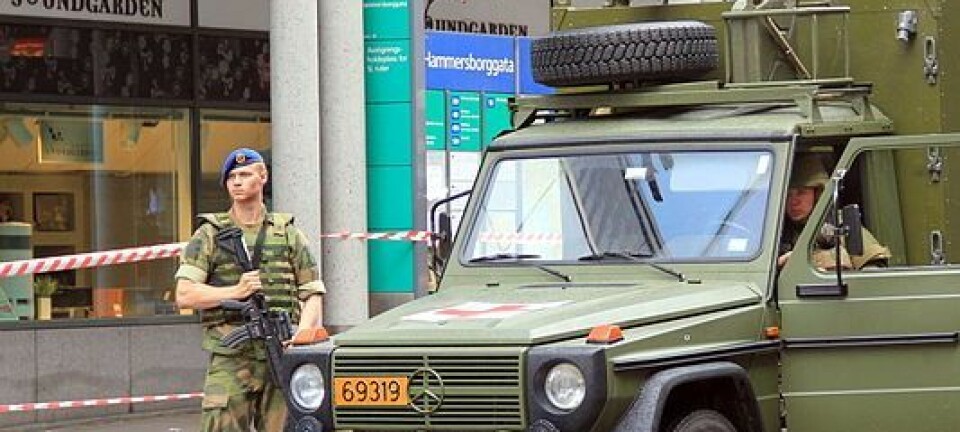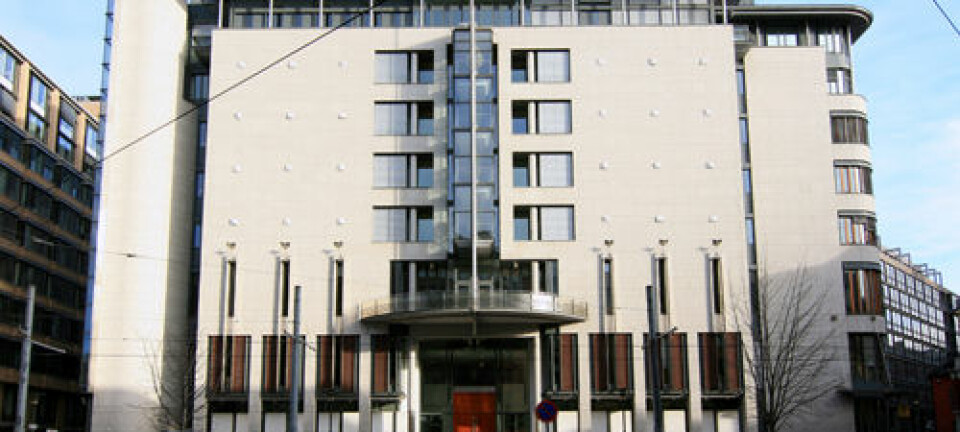
Swedish police and emergency personnel feel poorly prepared for terrorist attacks
A terrorist attack is a heart-breaking tragedy, but for police, fire and emergency medical personnel, it is also a highly complex and demanding situation requiring special skills and coordination of services.
A series of studies that looks at Sweden’s preparedness for mass-casualty attacks on public transportation shows that many first responders had doubts about their own agencies’ abilities to handle and manage the aftermath of a terrorist attack, especially during the first crucial hours.
Annelie Holgersson conducted the studies for her PhD dissertation at Umeå University’s Faculty of Medicine. Holgersson’s studies are partly based on questionnaires answered by members of the Swedish police force, along with ambulance and rescue service personnel, according to a press release from the university.
Only one in three felt prepared
Of the 864 employees in these agencies that responded to Holgersson’s survey, only 35 per cent said they considered themselves well prepared to handle the tasks that emergency personnel have to undertake at the scene of an attack.
Police felt the least prepared. Only 31 per cent of emergency responders thought their own organization's ability to deal with an attack was high. Police were the most likely to say they felt they didn’t have the knowledge they needed to perform their duties at the scene of an attack
In spite of this, roughly two-thirds of those surveyed said they would respond to explosions or chemical, biological or radioactive attacks.
Says nothing about actual preparedness
Holgersson stresses that her results do not mean that Sweden’s actual preparedness for and handling of a terrorist attack would be bad.
“On the other hand, many who work in emergency response departments feel that their organizations lack the necessary knowledge and resources to handle and limit the direct consequences of an attack,” Holgersson wrote in an email.
Holgersson says one positive aspect of her work is that it shows that agencies can act to make things better.
“Swedish emergency response personnel who had access to protective equipment and had been given the skills to handle terrorist attacks had a more positive perception of emergency preparedness. They knew what they were doing at the scene and also believed their agency had the ability to handle a widespread attack on public transport,” she wrote.
She said this suggests that investing in equipment and training can create better conditions for an effective response.
Holgersson has been a PhD candiate at the university’s Department of Surgical and Perioperative Sciences, Unit for Surgery, and has a master’s degree in Peace and Conflict Studies with a specialization in crisis management and peacebuilding, also from Umeå University.
Ambulances quickly dispatched, police lacked equipment
A number of other studies that Holgersson mentions in her dissertation also discuss the importance of emergency planning and exercises to ensure that emergency response personnel are prepared and can respond well.
For example, the report from Norway’s 22 July Commission strongly criticized the Norwegian police for a number of factors that led to the loss of valuable time during the attack by Anders Behring Brevik, which killed 77 people, many of whom were adolescents. A more recent study of the attack concluded that the ambulance service was prepared and in place early on at both Utøya and in Oslo at the site of the attacks.
But Utøya’s geography and the difficulty that police had in securing the area meant that it took extra time before the injured were helped. This together with the lack of a communication connection on Utøya and the collapse of the emergency call centre are serious matters that must be followed up on, the researchers concluded.
-------------------------------------
Read the Norwegian version of this article at forskning.no
Scientific links
- Annelie Holgersson: Preparedness for mass-casualty attacks on public transportation. Umeå Universitet medical dissertations, ISSN 0346-6612 ; 1778.
- Sollid, (et al.) Oslo government district bombing and Utøya island shooting July 22, 2011: The immediate prehospital emergency medical service response. Scandinavian Journal of Trauma, Resuscitation and Emergency Medicine. 2012;20(3).










